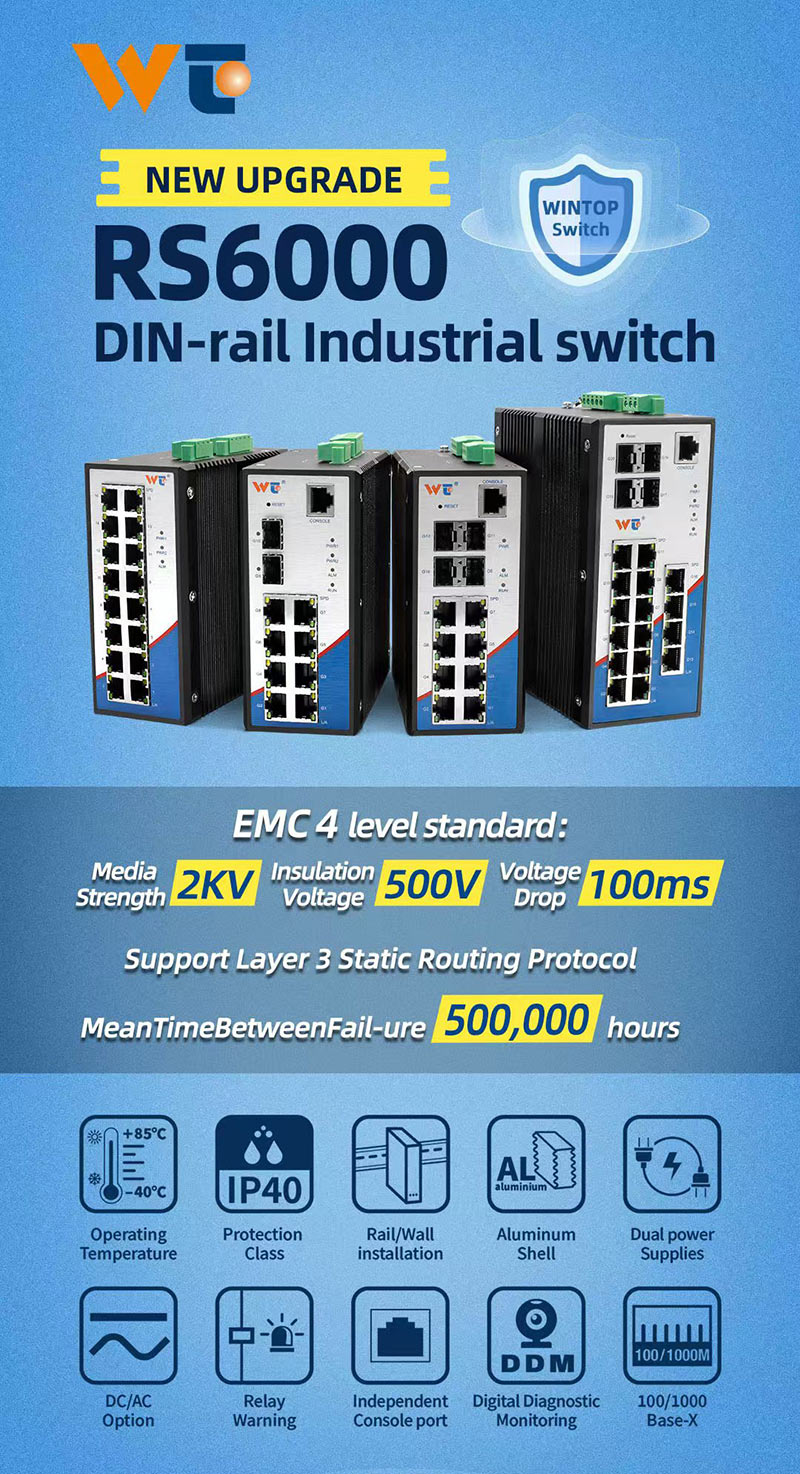Revolutionizing Public Transportation: The Technology of Industrial Switches in Intelligent Bus Systems
Imagine a city where buses glide seamlessly through traffic, arrive precisely on schedule, and communicate effortlessly with each other and the central control system. This isn't a scene from a science fiction movie; it's a glimpse into the future of public transportation, powered by the advanced technology of industrial switches in intelligent bus systems.
Industrial switches are the unsung heroes behind the curtain, enabling a new era of smart, efficient, and reliable bus systems. These robust devices ensure that every piece of data, from passenger counts to traffic conditions, flows smoothly and securely. But how exactly do they work, and why are they crucial for the intelligent bus systems of tomorrow?
The Heart of Intelligent Bus Systems: Industrial Switches
At the core of any intelligent bus system is a complex web of communication. Buses need to talk to each other, to the central control, and to various sensors and devices along their routes. This is where industrial switches come into play. These switches are designed to handle the rigorous demands of industrial environments, ensuring reliable data transmission even in the harshest conditions.
Industrial switches create a robust network infrastructure that supports real-time data exchange. This means that every piece of information, from the bus’s location to the status of its systems, is transmitted instantly and accurately. This level of communication is essential for maintaining schedules, optimizing routes, and ensuring passenger safety.
Beyond Basics: Advanced Features of Industrial Switches
Industrial switches are not just about basic connectivity. They come packed with advanced features that make them indispensable for intelligent bus systems. For instance, they support high-speed data transmission, which is crucial for real-time video surveillance and live streaming of onboard cameras. This capability enhances security and allows for immediate response to any incidents.
Moreover, these switches are designed with redundancy in mind. They can reroute data automatically in case of a network failure, ensuring that there is no interruption in communication. This is vital for maintaining the reliability and efficiency of the bus system.
Another significant feature is their ability to prioritize data traffic. In an intelligent bus system, some data is more critical than others. Industrial switches can prioritize this data, ensuring that essential information, like emergency signals and control commands, gets transmitted first.
Real-World Applications: Making Cities Smarter
Consider the bustling streets of a major city during rush hour. Traditional bus systems often struggle with congestion, delays, and inefficiencies. However, with intelligent bus systems powered by industrial switches, these issues become a thing of the past.
For example, in a smart city, traffic lights can communicate with buses to optimize traffic flow. Industrial switches enable this communication, allowing buses to avoid congested areas and maintain their schedules. Passengers benefit from shorter wait times and more reliable service.
Additionally, the real-time data collected by these systems can be analyzed to improve routes and schedules continuously. This dynamic adjustment ensures that the bus system meets the ever-changing demands of the city's population. Industrial switches make this possible by providing a stable and high-speed network that supports these real-time analytics.
Overcoming Challenges: The Complexity Behind the Scenes
Implementing intelligent bus systems is not without its challenges. One significant hurdle is the integration of various technologies and devices. Industrial switches play a crucial role here by acting as the central hub that connects all these components seamlessly.
Another challenge is ensuring cybersecurity. With so much data being transmitted, the risk of cyber-attacks increases. Industrial switches are equipped with advanced security features to protect the network from unauthorized access and data breaches. This ensures that passenger data and system operations remain secure.
Moreover, the harsh environmental conditions that buses operate in can be tough on electronic devices. Industrial switches are built to withstand extreme temperatures, vibrations, and moisture, ensuring they can perform reliably in any condition.
The Competitive Edge: Why Choose Industrial Switches?
When compared to standard network switches, industrial switches offer several advantages that make them the ideal choice for intelligent bus systems. Their durability, advanced features, and ability to handle complex data traffic set them apart.
Standard switches may not withstand the rigorous demands of a bus system, leading to frequent failures and maintenance issues. Industrial switches, on the other hand, are designed for long-term reliability and minimal maintenance. This reduces downtime and operational costs, providing a significant advantage for public transportation authorities.
Furthermore, the advanced data prioritization and redundancy features of industrial switches ensure that the bus system operates efficiently and reliably. This level of performance is crucial for maintaining public trust and satisfaction.
A Future of Seamless Connectivity
The future of public transportation lies in intelligent bus systems, and industrial switches are the backbone of this innovation. By enabling seamless communication, real-time data transmission, and robust network security, these switches are transforming how cities move.
Imagine a world where buses are not just a means of transportation but an integral part of a smart, connected city. Industrial switches are making this vision a reality, one connection at a time.
As we move towards this future, the role of industrial switches will only become more critical. They are not just components of a network; they are the lifeline that keeps the intelligent bus systems running smoothly and efficiently.
Conclusion: Driving the Future
In conclusion, the technology of industrial switches is revolutionizing public transportation by making intelligent bus systems a reality. Their advanced features, reliability, and ability to handle complex data traffic make them indispensable for modern urban mobility.
The next time you board a bus, remember that behind the scenes, industrial switches are working tirelessly to ensure your journey is smooth, safe, and on time. They are the silent heroes driving the future of public transportation.
"Connectivity is not just about linking devices; it's about creating a smarter, more efficient world. Industrial switches are at the heart of this transformation."
